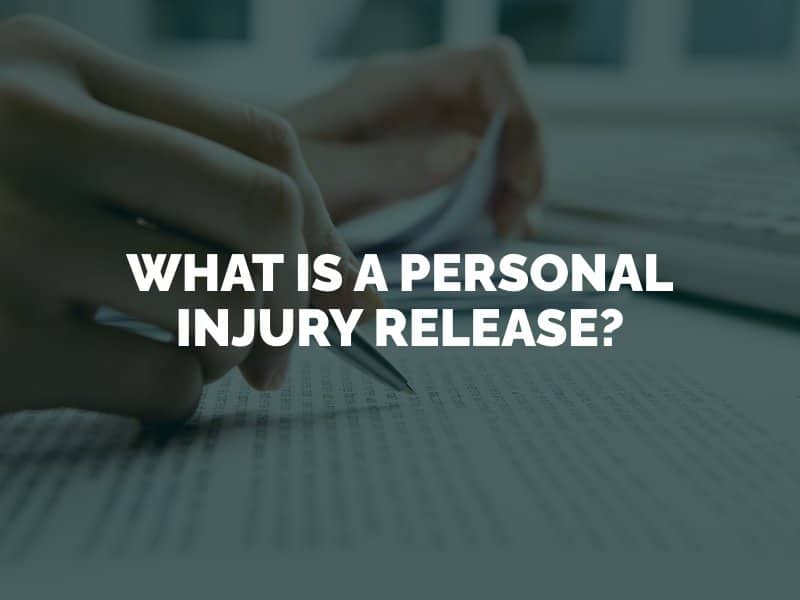Collecting a personal injury settlement in Colorado requires negotiating with an insurance company. The personal injury release form – also known as a release of liability waiver – is something that will be sent to you by the insurer if you reach a settlement agreement.
Before you sign the release, it is vital to consult with an experienced Denver personal injury attorney. If the settlement is less than you deserve but you sign off anyway, you cannot reopen your case or request a higher amount…even if you discover that your injuries are worth more than you initially thought.

A personal injury case is a legal dispute between an injured party (the plaintiff) and the person or party allegedly responsible for causing the injury through negligence (the defendant). Both parties – and their attorneys – will negotiate with each other until a settlement is reached. A settlement is an agreement to resolve the dispute for a particular sum. If a settlement cannot be reached, the case goes to trial.
Once both parties agree to a settlement, the insurance company will send a personal injury release form to the plaintiff. This is a legal document outlining the terms of the agreement and stating that the plaintiff agrees to give up certain rights – namely, the right to pursue additional compensation from the defendant for the same incident or injury in the future – in exchange for the sum given.
As the name implies, a “personal injury release” releases the defendant from any further liability for the victim’s injuries. The victim cannot pursue further compensation or future claims against the same defendant for the same incident. Once the waiver has been signed, the settlement check is issued and the case is permanently closed.
It is critical to check with an attorney and confirm that signing the release form is the right move for you, as you can’t go back. After a personal injury release form has been signed, it is a legally binding agreement. The settlement can no longer be renegotiated, and the defendant cannot be sued for additional liability. An attorney can review the settlement and let you know if it is fair or if you deserve more, before it is too late.
With only rare exceptions (e.g., if there was a clerical error or a significant misrepresentation of fact during the case), a plaintiff cannot reopen a closed personal injury case. Even if your injuries worsen over time, you have signed away the right to hold the defendant liable for any additional damages. This is why you should always consult with a lawyer before signing the release.
An insurance claims adjuster is the person who analyzes a claim to determine if the claimant is eligible for compensation. During conversations with claims adjusters, keep in mind that they do not work for you or want you to recover a maximum compensation; adjusters work for the insurance company, and their main goal is to save the insurer money.
If you don’t feel comfortable talking to an insurance adjuster on your own, an attorney in Colorado can handle negotiations and communications for you. Otherwise, be careful what you say to the adjuster. Do not give too much information; keep your answers short and concise. Do not admit fault for the accident and don’t discuss your injuries until you’ve seen a doctor. If the adjuster asks you to give a recorded statement, politely decline. You are not required to give a statement even if the adjuster says it is necessary to process your claim.
Finally, do not sign any documents sent to you by the insurance company – especially any type of personal injury release waiver. Take the paperwork to a lawyer near you for a comprehensive case review. You can trust your lawyer to protect you and negotiate a fair case resolution on your behalf.